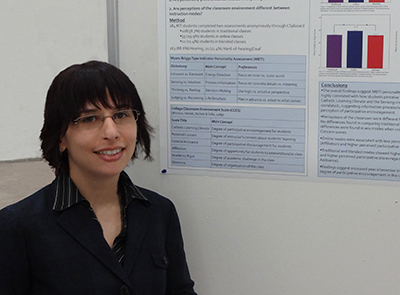Brittany

Psychology
As an individual with multiple disabilities that include cerebral palsy, mitochondrial disease, and hearing loss, having the right accommodations for my college career was critical, but knowing what accommodations I needed proved to be less obvious than I expected. This led to many challenges at the beginning of my college career at the Rochester Institute of Technology (RIT) in Rochester, New York. Though I had interpreters in my classes, I still missed a lot of critical information in class due to difficulty taking notes. I also struggled with the fast-paced quarter system, and with obtaining adequate energy levels and sleep.
I found myself overwhelmed by the college transition. I knew I needed help adjusting to it and decided to develop a community of supports. Reaching out to people on campus helped get my accommodations better-defined. I met with my accommodations advisor, who suggested I take a lighter class load and that I send out a letter to my professors informing them of challenges that could impact my attendance in class.
An abnormal psychology course led me to rediscover my interest in human behavior and mental health, so I decided to pursue a psychology degree. This decision led me to my exposure and interest in STEM, because RIT’s psychology department was a research-based program. One person in particular was most influential during my time in the psychology program at RIT.
I first met Dr. Tywanquila Walker when she taught psychological statistics. She was a remarkable and passionate teacher, and I quickly found myself putting in extra hours of study time to master the concepts.
I found a passion for the work that was highly unexpected. I got top marks in the course and also found a love for learning more about research and what I could do.
Dr. Walker was one of my advisors for my senior capstone project. She encouraged my research ideas, and allowed me to work in her child development lab where I got experience with recruiting subjects, administering testing, using new software, and solving problems.
Had I not taken the first step and experienced first-hand what the field of psychology had to offer, I would have missed out on many valuable things. Now that I have graduated, I find myself facing uncertainty similar to when I was a high school graduate. The difference is, I know a little more about myself and know I can contribute to this field. It may take time to figure out what my specific direction is, but I’m looking forward to the potential I know is out there.